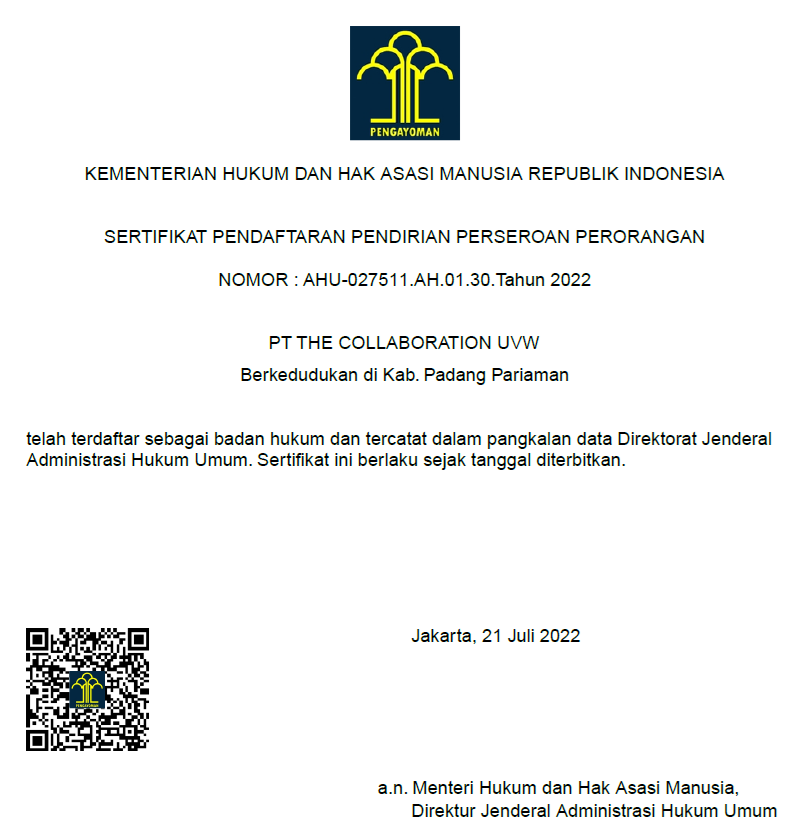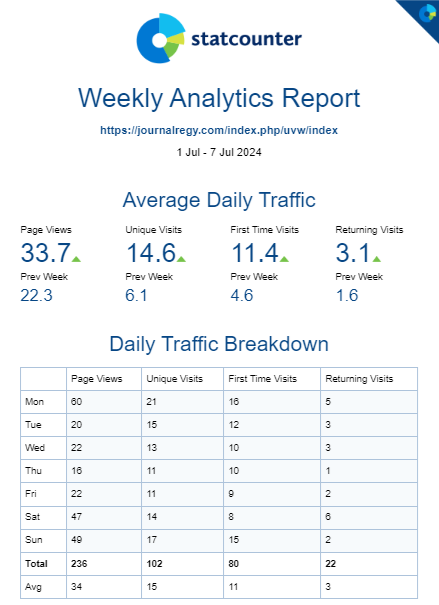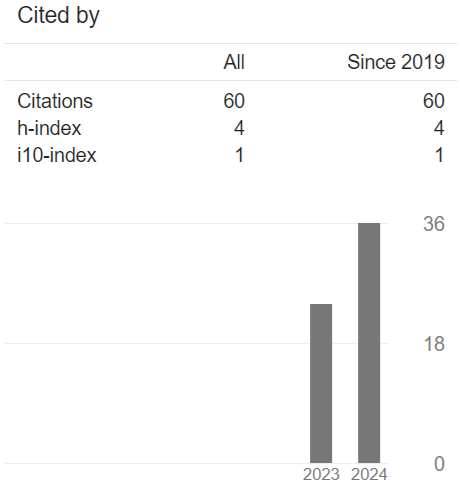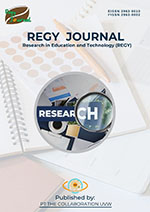Building entrepreneurial character in schools: preparing the young generation for the world of work
DOI:
https://doi.org/10.62590/regy.v2i2.113Keywords:
entrepreneurial character, entrepreneurship program, young generationAbstract
The entrepreneurial spirit emerges through a long process, especially for those who do not have experience or are not used to being in an environment that supports the growth of the entrepreneurial spirit. Often educational institutions only produce students who are skilled but do not have an entrepreneurial spirit, so that in the end students are formed as workers ready to work, not job creators. Long before, in the process of cultivating an entrepreneurial spirit through education, there was a process of forming an entrepreneurial spirit, namely through a process of learning and habituating oneself as the originator of character in the future. However, if it is related to the needs, hopes, and support of the government for the growth of the entrepreneurial spirit through education, then this matter deserves more attention. The following describes several entrepreneurial activity programs that management can carry out to foster an entrepreneurial spirit for students, namely through entrepreneurship-based extracurricular activities, field trip activities at traditional markets and MSMEs, and holding Bazar at school.
References
Amar, A., Hidayat, D., & Suherman, A. (2016). Penerapan model pembelajaran teaching factory 6 langkah (model TF-6M) untuk meningkatkan motivasi berprestasi siswa di SMK. Journal of Mechanical Engineering Education (Jurnal Pendidikan Teknik Mesin), 2(2), 189-198. https://doi.org/10.17509/jmee.v2i2.1479.
Arpan, M., Ambiyar, A., & Rizal, F. (2022). Konsep project and peer tutoring-based learning pada pembelajaran abad 21. Sukoharjo: Tahta Media.
Arpan, M., & Sadikin, S. (2020). Media pembelajaran interaktif perangkat keras komputer. INVOTEK: Jurnal Inovasi Vokasional dan Teknologi, 20(2), 43-50. https://doi.org/10.24036/invotek.v20i2.741.
Batubara, Q. N. M. (2023). ICT-based needs analysis of learning arts and culture in middle school at Sunggal. Research in Education and Technology (REGY), 2(1), 38-41. https://doi.org/10.62590/regy.v2i1.96.
Dewi, M. (2018). Need analysis pengembangan model pembelajaran berbasis proyek e commerce pada mata kuliah Kewirausahaan. Jurnal Pendidikan dan Teknologi Informasi, 5(1), 71-80.
Dewi, M., Rahayu, P. E., Sari, V. P., Rahmawati, E., & Dika, R. P. (2020). Pengaruh mind set dan motivasi wirausaha pilihan karir mahasiswa Universitas Putra Indonesia “YPTK” Padang. International Journal of Technology Vocational Education and Training, 1(1), 85-90.
Dewi, M., Rosalina, L., & Ernawati, E. (2021). Efektivitas e learning mata kuliah Kewirausahaan di Universitas Negeri Padang pada masa pandemi COVID 19. Indonesian Journal of Informatic Research and Software Engineering (IJIRSE), 1(1), 9-15. https://doi.org/10.57152/ijirse.v1i1.39.
Dewi, M., Rukun, K., & Efi, A. (2018). Expert validity pada pengembangan model pembelajaran berbasis proyek e commerce pada pembelajaran kewirausahaan. Jurnal Pendidikan Teknologi Kejuruan, 1(2), 43-50. https://doi.org/10.24036/jptk.v1i2.923.
Diawati, P., Ausat, A., & Augustin, J. (2023). Creativity: How to develop an entrepreneurial attitude of creativity. Journal on Education, 5(4), 11116-11122.
Feladi, V., Arpan, M., & Verawardina, U. (2017). Pelatihan pembuatan media pembelajaran berbasis animasi di SMP Negeri 2 Siantan Kabupaten Mempawah. Gervasi: Jurnal Pengabdian kepada Masyarakat, 1(1), 32-42. https://doi.org/10.31571/gervasi.v1i1.597.
Hardini, M. G., Khaizure, T., & Godwin, G. (2024). Exploring the effectiveness of e-learning in fostering innovation and creative entrepreneurship in higher education. Startupreneur Business Digital (SABDA Journal), 3(1), 34-42. https://doi.org/10.33050/sabda.v3i1.441.
Indah, K. A. (2017). Strategi manajemen sekolah dasar dalam menumbuhkan jiwa kewirausahaan. Jurnal JPSD (Jurnal Pendidikan Sekolah Dasar), 4(1), 77-86.
Karlsson, C., Rickardsson, J., & Wincent, J. (2021). Diversity, innovation and entrepreneurship: where are we and where should we go in future studies? Small Business Economics, 56(October), 759-772. https://doi.org/10.1007/s11187-019-00267-1.
Kreiterling, C. (2023). Digital innovation and entrepreneurship: a review of challenges in competitive markets. Journal of Innovation and Entrepreneurship, 12(49), 1-13. https://doi.org/10.1186/s13731-023-00320-0.
Lesmana, C., Arpan, M., Ambiyar, A., Wakhinuddin, W., & Fatmawati, E. (2019). Respons mahasiswa terhadap pelaksanaan program matrikulasi. Edukasi: Jurnal Pendidikan, 17(2), 227-237. http://dx.doi.org/10.31571/edukasi.v17i2.1528.
Nurdiana, N. S. S. (2021). Pengembangan minat dan bakat peserta didik melalui kegiatan ekstrakurikuler. Jurnal Bimbingan Konseling Islam, 2(2), 172-187.
Putri, M., Rahmiati, R., Dewi, M., & Irfan, D. (2022). Praktikalitas penggunaan e-modul dalam pembelajaran nail art. JRTI (Jurnal Riset Tindakan Indonesia), 7(1), 60-62. https://doi.org/10.29210/30031508000.
Qiu, Y., García-Aracil, A., & Isusi-Fagoaga. R. (2023). Critical issues and trends in innovation and entrepreneurship education in higher education in the post-covid-19 era in China and Spain. Education Sciences, 13(4), 407. https://doi.org/10.3390/educsci13040407
Sugiyono. (2016). Metode penelitian kuantitatif, kualitatif, dan R&D. Bandung: CV Alfabeta.
Sulistiyarini, D., Bibi, S., Fatmawati, E., & Arpan, M. (2018). Pelatihan pembuatan media pembelajaran interaktif di SMP dan SMK Mandiri Pontianak. Gervasi: Jurnal Pengabdian kepada Masyarakat, 2(1), 39-46. https://doi.org/10.31571/gervasi.v2i1.811.
Supardi, S., Putra, R. K., Iqbal, M., & Toni, K. (2023). Development of mobile AR applications as a science learning media in increasing junior high school students’ interest in learning. Research in Education and Technology (REGY), 2(1), 1-5. https://doi.org/10.62590/regy.v2i1.93.
Downloads
Published
How to Cite
Issue
Section
License
Copyright (c) 2024 Yul Amri, Afliah Monalisa

This work is licensed under a Creative Commons Attribution-ShareAlike 4.0 International License.

















